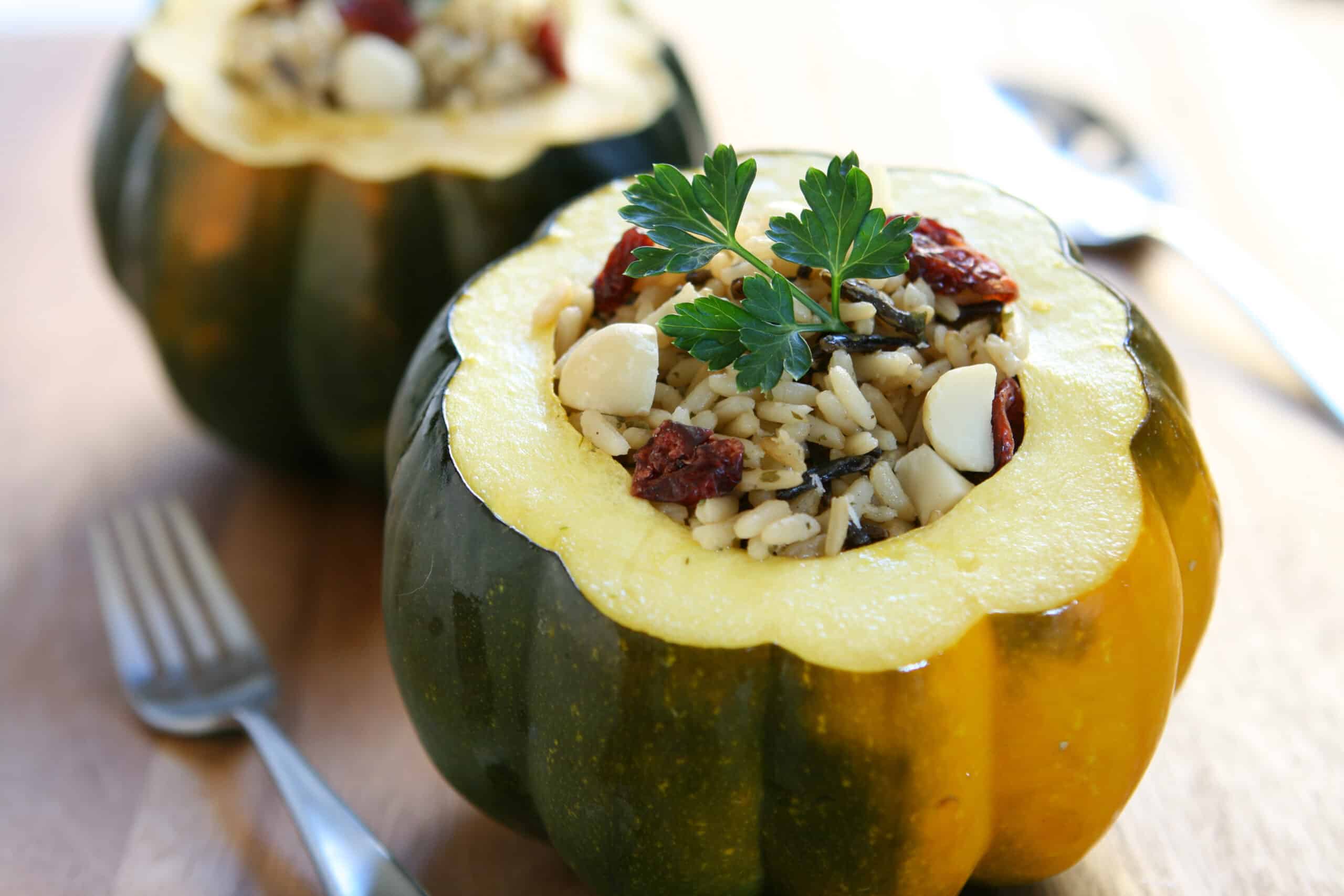This squash belongs to the Cucurbitaceae gourd family and varies in colour but most commonly is seen in dark green with bright patches of orange. Its is easy to grow with yellow orange flesh that is slightly nutty tasting, and it is grown in many countries. They are classified as a fruit but considered a starchy vegetable that when stored properly can be kept for up to a month.
Acorn squash is highly nutritious and can be used similarly to other high carb veggies like sweet potatoes. One cup of cooked acorn squash can contain 115 calories, 30 grams of carbs, 2 grams of protein, 9 grams of fiber, 18% of the recommended daily value of provitamin A, 37% of the DRV for vitamin C, 23% of the DV for vitamin B1, 20% of vitamin B6, 10% of folate, 11% of iron, 22% of magnesium, 26% of potassium, and 25% of the daily value for manganese.
Acorn squash is rich in vitamin C which will help to promote immune system health by supporting immune cell function and protect against harmful microbes. Acorn squash is also a great source of B vitamins which are involved in red blood cell production and metabolism, as well as electrolytes that are key to muscle function and blood pressure regulation.
This healthy food choice is also loaded with fiber that is critical for healthy digestion and plays roles in disease prevention. Acorn squash can help to slow down digestion, regulate blood sugar levels, and promote feelings of fullness thanks to its fiber content, unlike refined carb sources such as white rice and white pasta.
Acorn squash is also an excellent source of antioxidants that will help to protect against cellular damage and reduce the risk of various chronic conditions like heart disease and certain cancers. Carotenoids found in acorn squash include alpha carotene, beta carotene, and zeaxanthin that can help protect against mental decline, eye related disorders, lung cancer, and type 2 diabetes.
Acorn squash contains both insoluble and soluble fiber which will add bulk to stool while keeping them soft to help prevent constipation and support regular bowel movements to keep everything moving smoothly. These types of fiber work together to also aid the friendly probiotic bacteria living in the gut which strengthens the immune system and helps to protect against disease.
Increasing your vegetable intake by including acorn squash into your diet is a smart way to protect overall health and lower risks for many chronic diseases. Vegetable rich diets have been shown to lower heart disease risk factors including but not limited to high blood pressure and LDL cholesterol levels, and to help protect against atherosclerosis, heart attack, stroke, type 2 diabetes, obesity, neurodegenerative diseases, and may even help to extend overall lifespan.
Acorn squash is incredibly versatile and can be used as a healthy carb to substitute in place of other starchy vegetables thanks to its pleasing slightly nutty flavor. Acorn squash can be consumed roasted, baked, or cooked in the microwave for a quick side dish.
One of the easiest ways to prepare acorn squash is to cut it in half, remove seeds, then drizzle lightly with olive oil to bake in the oven at 400 degrees F cut sides down for about 30-45 minutes or until tender. Sliced into thin pieces acorn squash can also be roasted to soften the skin to perhaps toss into a salad.
Acorn squash can be tossed into salads to add colour; or pureed into pies, breads, and muffins. It can also be caramelized to add to a variety of dishes, turned into a mash, as well as added to smoothies. Acorn squash can even be stuffed with cooked quinoa, pumpkin seeds, cranberries and cheese to create a yummy vegetarian meal option. Acorn squash can be used in numerous ways to add more variety to your meals, all of which make it worthy of being added to your diet.




